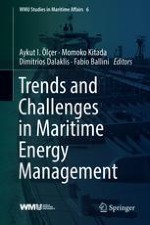2018 | OriginalPaper | Chapter
Energy Efficient Ship Operation Through Speed Optimisation in Various Weather Conditions
Authors : Tong Cui, Benjamin Howett, Mingyu Kim, Ruihua Lu, Yigit Kemal Demirel, Osman Turan, Sandy Day, Atilla Incecik
Published in: Trends and Challenges in Maritime Energy Management
Publisher: Springer International Publishing
Activate our intelligent search to find suitable subject content or patents.
Select sections of text to find matching patents with Artificial Intelligence. powered by
Select sections of text to find additional relevant content using AI-assisted search. powered by
